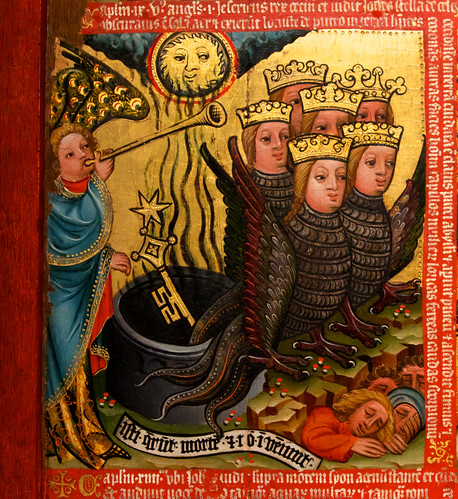We run our website the way we wished the whole internet worked: we provide high quality original content with no ads. We are funded solely by your direct support. Please consider supporting this project.
On the Language of “Revolution”
Question: The banner of your website and the thrust of much of your teaching focuses on “revolution.” While I can see a radical call in some of the sayings of Jesus, especially if he were addressing upper-middle class North Americans, I wonder if attaching revolutionary language to his teaching seems a stretch. He did not join with the Zealots of the day. He said to his captors, “Am I leading a rebellion, that you come at me with clubs and swords?” Revolutionary culture is connected with all sorts of movements, many stemming from the Enlightenment and communism that seemed to embrace ideologies of autonomy and methodologies of violence. That seems to conflict with the spirit of your own communitarian and pacifist teachings. Could you explain why you use revolutionary language?
Answer: I understand your concern about the world’s association of revolution with violence and social upheaval etc. Jesus’ kingdom certain wasn’t that. At the same time I think that the Kingdom inaugurated by Jesus was far MORE revolutionary, not less, than common examples of revolution, whether the American, French, or Russian. Everything Jesus did revolted against aspects of the culture and creation that weren’t consistent with God’s will, and thus revolted against the principalities and powers that (in a first century apocalyptic context) were believed to be behind those aspects of society and creation. And he revolted, ultimately, by not only refusing to hate his enemies, but instead to love and bless his enemies, which is the opposite of the world’s way of revolting. So I want to reclaim the most radical “revolt” word we have available and redefine it within the kingdom. This word is revolution.
The same objection has been raised about my “spiritual warfare” language, and I give the same response, since warfare language permeates the Bible, including the NT.
The Bible has a great example of using revolution/warfare language and turning it on its head to mean the opposite of what it means in the world. It’s found in the book of Revelation. John employs dozens of violent symbols from the OT and apocalyptic literature of his day and he turns them on their head to mean the opposite. [I’m in the middle of preaching a six week series on Revelation right now]. So I feel there is biblical warrant for doing the same today.
Nevertheless, you are concerned about the right things, and it just means we have to make an extra effort to be sure we are communicating the kind of revolution and warfare that is consistent with the revolution and warfare of the cross. The cross defines the revolution.
Blessings,
Greg
For more on the topic of revolution, see Greg’s book Myth of a Christian Religion: Losing Your Religion for the Beauty of a Revolution. This book introduces 12 ways that the revolution should stand against the principalities and powers of the world.
For the sermon series that was the precursor to this book, click here.
For the recent sermons from the series Rescuing Revelation where I outline how God takes revolutionary language and turns it on its head, click here.
Category: General
Tags: Enemy Love, Kingdom, Love, Non-Violence, Pacifism, Revelation, Revolution, Viva la Revolution!
Related Reading

Greg’s Response to Driscoll’s “Is God a Pacifist” Part III
This is the last of a three-part response to Mark Driscoll’s post, “Is God a Pacifist?” We’ve seen that, to prove that Jesus was not “a pansy or a pacifist” (meaning that Jesus was okay with justified killing), Mark Driscoll skips over what Jesus actually taught and modeled in the Gospels and instead appeals to…

A Lesson in Otherness
http://youtu.be/VeK759FF84s Long, long ago, a third grade teacher taught her class a lesson they will never forget. You won’t forget it either. This video is nearly 15 minutes long, but it’s so worth your time. Let’s love one another.

Shane Claiborne on How Bad Theology Can Be Deadly
David D Flowers shared this video over at The Centrality and Supremacy of Jesus Christ and we thought it was worth sharing here too. Theology matters.

Does the Author of Hebrews Condone Capital Punishment? A Response to Paul Copan (#12)
In his critique of Crucifixion of the Warrior God (CWG), Paul Copan argues that several New Testament authors condone capital punishment as directly willed by God. The most challenging for my thesis, in my estimation, is Hebrews 10:26-29, which reads: For if we willfully persist in sin after having received the knowledge of the truth,…

ReKnew Update I
Greg shares an update on the ReKnew fundraiser. Hope you’ll consider joining this Kingdom movement!

Reversing Babel
Several generations after the flood, we read in Gen 11 how humans were still living in one locale and had one common language and culture. Then someone came up with the brilliant idea that they should construct an enormous tower that would reach “to the heavens” in order to make a name for themselves and…

